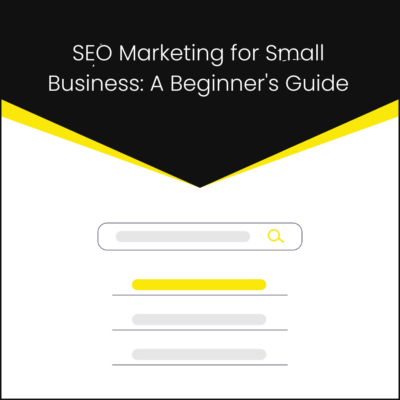Avoiding these pitfalls is crucial if you want your business to thrive in the long run. In this article, we’ll cover some of the Common mistakes when starting a business and, more importantly, how to avoid them. From lack of planning to fear of failure, each of these mistakes can impact your business in different ways.
By understanding these challenges and learning how to overcome them, you’ll be in a better position to navigate the path to success with confidence. Whether you’re just starting or already on your entrepreneurial journey, this article will offer practical tips and insights to help you build a strong foundation for your business.

Table of Content
- Lack of Planning
- Underestimating Costs
- Ignoring Marketing
- Skipping Legal Steps
- Trying to Do Everything Yourself
- Ignoring Customer Feedback
- Expanding Too Soon
- Poor Cash Flow Management
- Not Networking
- Fear of Failure
- Giving Up Too Soon
- Key Takeaway
1. Lack of Planning
Starting a business without a clear plan is a recipe for failure. Many new entrepreneurs jump into business eager to sell their product or service, without fully understanding the market, competition, and what it will take to succeed.
How to Avoid It:
Create a business plan that outlines your goals, target audience, marketing strategy, and financial forecasts. A well-thought-out plan will provide direction and help you stay focused. Break down your plan into smaller, manageable steps, and review it regularly to ensure you’re on track.
2. Underestimating Costs
Starting a business involves various hidden costs that are often overlooked. Underestimating these costs can cause serious cash flow problems that can halt your progress.
How to Avoid It:
Estimate all costs involved in running your business, including rent, utilities, raw materials, employee salaries, and unexpected expenses. Always include a contingency fund for emergencies, ideally 10-20% of your total costs. Review your expenses regularly to stay within budget.
3. Ignoring Marketing
Many entrepreneurs assume that a great product will automatically attract customers, but this is rarely the case. Marketing is essential to drive traffic, raise brand awareness, and generate sales.
How to Avoid It:
Make marketing a priority. Focus on digital marketing strategies such as social media marketing, content creation, Google ads, and SEO (search engine optimization) to reach your target audience. Don’t wait until your product is perfect—start promoting as soon as possible.
4. Skipping Legal Steps
Not registering your business or skipping other legal requirements can result in fines, legal issues, or even business closure. Many beginners ignore the importance of setting up their business legally.
How to Avoid It:
Register your business with the Registrar of Companies (ROC) and obtain necessary licenses, such as an FSSAI license if you’re in the food industry or a GST registration if you’re above the turnover threshold. Consult with a professional to ensure you’ve covered all the legal aspects.
5. Trying to Do Everything Yourself
As a new business owner, it’s tempting to take on every task yourself in an effort to save money. However, doing everything on your own can lead to burnout and mistakes.
How to Avoid It:
Delegate tasks to employees, freelancers, or even automate processes where possible. Use tools like QuickBooks or Zoho to manage accounting, and consider hiring a freelance designer or marketer. Spreading the workload will allow you to focus on growing the business rather than getting bogged down in daily tasks.
6. Ignoring Customer Feedback
Ignoring customer feedback can result in missed opportunities to improve your products or services. Customers’ insights are invaluable for business growth.
How to Avoid It:
Establish feedback channels such as surveys, reviews, or direct conversations with customers. Pay attention to their suggestions and complaints, and use them to improve your offerings. Regularly engage with your customers through social media and email to keep the feedback loop open.
7. Expanding Too Soon
Premature expansion can lead to financial strain and operational inefficiencies. Growing your business too quickly may cause more harm than good.
How to Avoid It:
Focus on solidifying your foundation before scaling. Ensure your current operations are smooth and profitable before considering expansion. Grow your customer base and fine-tune your business processes before branching out into new markets or opening additional locations.
8. Poor Cash Flow Management
Even profitable businesses can fail due to poor cash flow management. If you don’t properly track your income and expenses, you may face liquidity issues.
How to Avoid It:
Carefully track your cash flow by monitoring income, expenses, and profits. Use accounting software or hire a professional to ensure your finances are managed properly. Stay on top of payments and avoid delays, and ensure you have enough cash reserves to cover operating costs.
9. Not Networking
Networking is crucial for building business relationships, learning from others, and finding new opportunities. Failing to network can limit your chances for growth.
How to Avoid It:
Join industry-related networking groups and attend events, both online and offline. Platforms like LinkedIn are great for connecting with like-minded professionals and potential clients. Build relationships that can help your business grow in the long term.
10. Fear of Failure
Fear of failure can prevent new business owners from taking necessary risks or making important decisions. While it’s normal to be cautious, letting fear control your actions can hold you back.
How to Avoid It:
Don’t let the fear of failure paralyze you. Take small steps, set achievable goals, and don’t expect everything to be perfect. Embrace failure as a learning opportunity and use it to improve your decisions. Remember that every successful entrepreneur has faced setbacks.
11. Giving Up Too Soon
The road to success is rarely smooth, and many entrepreneurs quit too soon when they face challenges. It’s easy to get discouraged when things don’t go as planned, but perseverance is key to overcoming obstacles and achieving success.
How to Avoid It:
Stay committed to your vision and focus on your long-term goals. Don’t be afraid to pivot or adjust your strategy when needed, but don’t give up entirely. Embrace each setback as a learning opportunity and remember that building a business is a marathon, not a sprint.
Key Takeaway
Starting a business is a rewarding but challenging journey. By avoiding these common mistakes and following the tips provided, you can increase your chances of success.
Focus on proper planning, sound financial management, listening to your customers, and continuously adapting. Remember, building a business takes time, and success doesn’t happen overnight. Stay committed, keep learning, and your efforts will pay off.
Conclusion
Starting a business can feel overwhelming with all the steps and challenges. But don’t worry! You don’t need to be perfect. With patience, persistence, and the right approach, you’ll overcome obstacles. Enjoy the journey—it’s all part of the learning process.
If you’re interested in further growing your business, we encourage you to check out our other articles on how to Increase Instagram Followers, digital marketing strategies, and SEO marketing for small businesses. These resources will help you take your business to the next level! Keep pushing forward, and good luck on your entrepreneurial journey!
I’m a detail-oriented, creative professional with a background in fashion design, graphic design, and now digital marketing. Starting in fashion, I moved into freelance graphic work, honing my skills along the way. Currently, I’m exploring digital marketing, blending creativity with strategy. I believe in experiencing life fully, enjoying each moment, and constantly seeking new ways to connect, create, and innovate.

Recent Posts
- How to Increase Instagram Followers December 27, 2024
- SEO Marketing for Small Business: A Beginner’s Guide December 27, 2024
- Content Marketing Strategies: Tip for beginners December 27, 2024








